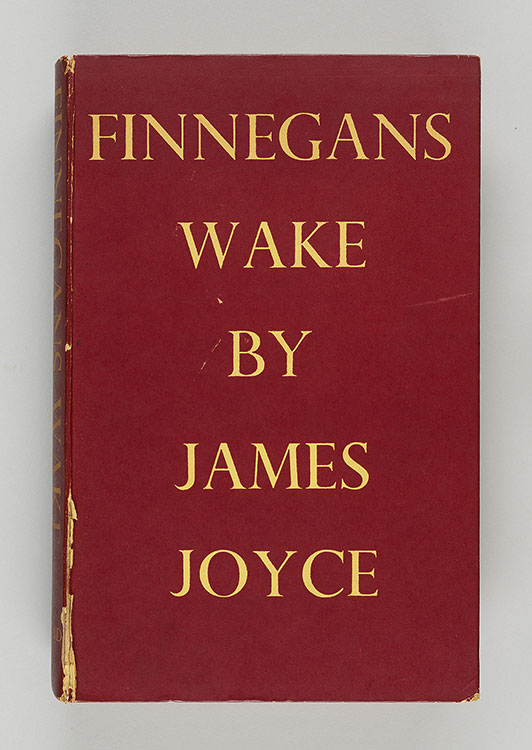
Joyce devoted seventeen years to writing Finnegans Wake—a novel about a single night, composed in a style he described as “gliding and unreal as is the way in dreams.” Despite the presence of characters and plot, the Wake defies all other conventions of narrative. It is an assemblage of puns, riddles, and myths—derived from more than sixty languages—that begins and ends in the middle of the same sentence. By 1936 Joyce said that the book had become “more real to [him] than reality, and everything has led to it.” The work’s serialization and stand-alone publications of excerpts often elicited perplexed or negative responses from critics. Joyce considered it his greatest work. The copy shown here is an advance copy of the novel, bound in printed paper-covered boards bearing the final dust jacket design–one of the few known to survive.
James Joyce (1882–1941)
Finnegans Wake [Advance Copy]
London: Faber and Faber, 1939
The Morgan Library & Museum, gift of Sean and Mary Kelly, 2018; PML 197823
